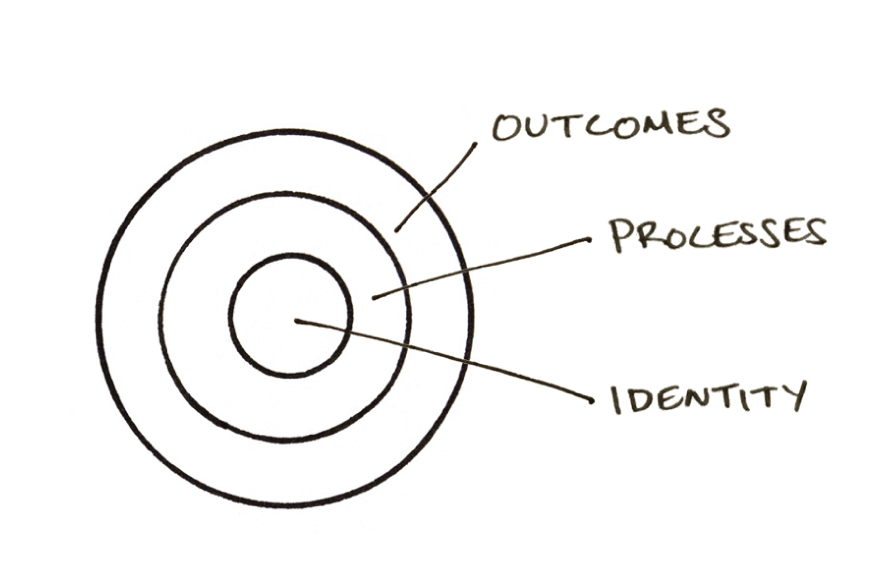As a student myself, I know the burden of having so many choices to make and feeling burnout from deciding. But I have found quite a few ways to remedy this problem.
There are 5 methods I have discovered to conquer decision fatigue, and that is:
- Say No To More Decisions
- Master The Ability To Focus
- Cut Out Bad Habits Distracting You
- Plan Enough, Decide More
- Manage Urgent & Important Items
The concepts I just listed seem simple enough, but I think to get the most out of these ideas I think we need to delve just a little deeper. So, let's get started.
How To Say No To More Decisions

Say no, and mean it. I think many of us struggled with saying no as we felt rude doing so, but I would argue it's more of a waste of everyone's time if you say yes to something you don't want to do, and or do not have time to do.
I was always been told you have to say yes to more things when going to high school and now college, but I find the opposite is true. To excel at specific tasks more you have to not only dedicate more time to said activity, but ALSO say NO to other less crucial activities.
I'm not saying don't participate in extracurricular activities, as those are absolutely great for morale, self-esteem, and skill building. What I am saying is do not take on so much that the work you do becomes mediocre because you are spread so thin.
If you want to become excellent at school similar to how you become excellent at any sport, it's the time dedication, and ability to say no to opportunities that will get you far.
Saying no helps creates focus, and focus helps you accomplish your goals.
- So in short: be honest, say no to things that are not as important and not as urgent to you, so you can put all your attention on the task at hand
How To Master The Ability To Focus

Deep uninterrupted work.
This is something Cal Newport talks about extensively in his book titled Deep Work. This is something I developed partially by accident when I was younger, with quite a bit of encouragement from my parents, and I would say it helped tremendously in my productivity as a kid, and now adult.
It turned what would take most people several hours to do, into about 2 hours' worth of work.
So how do we do this?
Make time for deep uninterrupted work, where you can do nothing else, but the work in front of you.
If we break this down even further, I would say it consists of 4 parts:
- The Time
- The Place
- A Clear Mind
- An Ultimatum
- The time you allocate, should be lets say 90 minutes, and you can do nothing in that time except the task you need to do. The human mind despises boredom, so the task itself will therefore be more enticing than the boredom.
- The place in which you work should be clean, and clear of distracting notifications or fidgets (mine are usually Rubik's cubes that I have to put away), as well as also away from people if you can. Humans are social butterflies by nature, however, this can sometimes lead to less productive outcomes.
- A clear mind will help you more than anything else out of these 4. Your ability to think about the task that you have solely can assist you dearly in the hopes of accomplishing the task. To addon avoid music for the more deep work-related tasks, like advanced math equations, or deep literature essays, as they require more brainpower. Now if you have more menial tasks like regular school busywork, by all means, blast the music away.
- An ultimatum or deadline can always help in terms of "encouragement" some teachers may say to get things done. It's another form of motivation besides going towards the goal, there is something, usually negative that will occur if you don't finish your work.
Cut Out The Bad Habits Distracting You

Sometimes moderation is the answer, sometimes you have to get rid of the thing entirely. Some of these decisions will come down to your own judgement, but I think there are a few that we can sort out here.
There are 2 main ones that I think affect students the most:
Let's get one of the obvious ones out of the way: social media. Social media can become a huge distraction from doing your schoolwork, or any work for that matter.
Therefore a way to manage this is to pull up your screen time in your settings, and then set limiters in your phone and in the apps themselves. And hold YOURSELF ACCOUNTABLE. Do not lie to yourself about how much time you are spending. Accept the time you are spending on said social media, and change that.
Another alternative is to get rid of the app entirely. I personally at the time of writing deleted all my social media, and I only access YouTube if I look up the exact video or channel in a Google search.
Another way to go about this if you need to check social media is to only allow yourself to check it on your computer, as it takes a conscious effort to do so, and is not as EASY as checking your phone.
The second is doing activities that may be productive on their own, but now become a way to procrastinate from doing the task that needs to be completed. This is called action faking.
A common example, one I am guilty of doing, is thinking "you know I need to go do my chores, and go outside, and go to the gym, and then go get a haircut, even though my assignment is due this morning at 10:30 am, but at least I am being productive."
Technically speaking, the statement is true, it becomes a form of procrastination. As a student that is a killer of good work.
So how do we stop this?
We have to plan out our activities more and then do them exactly when we say we are going to. Having a set allotted time where you can do nothing but work, your body will rather do work than be bored.
To wrap this section up:
- Severely reduce, or get rid of social media entirely
- Stop action faking, start doing
Plan Enough, Decide More

Quite frankly I was a consistent planner procrastinator, where I felt productive about learning about being productive and making plans rather than actually doing the work. Looking back now it seems kind of silly.
But I think it was important for my character growth, because now I know the difference between what FEELS productive, and what true productivity is.
Let's break it down.
Only planning and not doing may feel productive, but can be worse than doing nothing at all. As you are tricking your body into believing it is being active. This is a problem James Clear, author of Atomic Habits defines as:
"When you’re in motion, you’re planning and strategizing and learning. Those are all good things, but they don’t produce a result. Action, on the other hand, is the type of behavior that will deliver an outcome."- James Clear
Planning can become a form of motion, and therefore procrastination of sorts.
So how do we solve this?
Make a plan that gets all the main points of what you need to do (don't worry about the details for now), then act on the plan. This will get you the most bang for your buck as some would say.
So for an example set up a plan for your homework assignments this week by the day their due, and then instead of just looking at the plan, act upon it, start working on your assignments. The plan is made to help you organize your work for the right times to do each assignment. It is not, however, a substitute for doing the work itself.
- Simply put, plan only enough and no more, and then make choices relentlessly so you can maximize your productivity.
Manage Urgent & Important Items
I considered not having this in the article at all, as making decisions and saying no means inherently saying yes to other opportunities, but I think this topic warrants its own section.

This is Stephen Coveys Important/Urgent Matrix, and where we want to be is in Quadrant II. We want to maintain the important, while also making said important items non-urgent. How can we accomplish this?
Planning.
You know how I said planning only enough and not any more earlier, well this is where this comes into play. We can reduce our stress significantly if we measure when and how we accomplish certain tasks.
Many of us are in Quadrant I far more than we should be, but we can fix that. We can do this by sorting the menial tasks that are not urgent and or not important at all.
We can then take what is important and then plan accordingly to lower the potential stress by procrastinating.
One way to plan is to have and or make a calendar for all your assignments, especially one that can show on a monthly and weekly basis so you can transition from looking at the bigger picture to focusing on the task at hand.
In short, how do we manage urgent and important items?
- We plan that which is important and then simultaneously move away from the menial tasks in Quadrants III and IV
Conclusion
To conclude this conglomerate of information: to conquer decision fatigue, you have to ease your ability to make the choices, and ultimately decide.
All the tips I provided throughout, can be applicable to all parts of life, not just school. I found school to be an excellent example as it is something I can relate to the most.
From there, I fundamentally believe that decision fatigue can be solved when you plan enough, and only enough, and then commit yourself to the action, not the goal itself.
Action precedes motivation. Once you make a choice it becomes that much easier to be truly invested in the decision.






